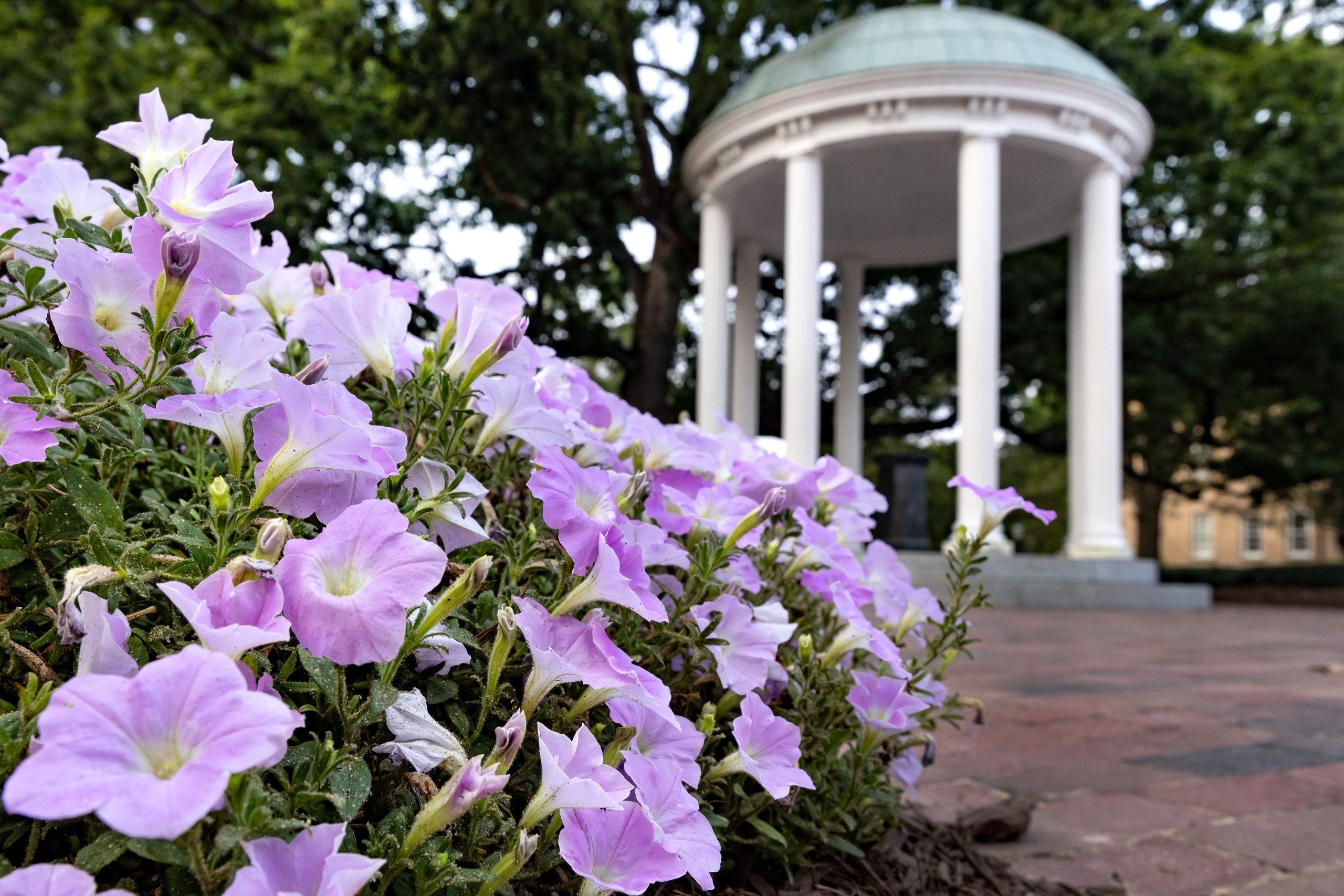Carolina cancer experts available for interviews

May is National Cancer Research Month. UNC-Chapel Hill researchers and clinicians are at the forefront of new cancer discoveries, quality treatment and cancer prevention.
Carolina experts are available to discuss a variety of cancer topics, including:
- Research developments on different forms of cancer and their treatment, including breast cancer, bladder cancer, kidney cancer, lung cancer, head and neck cancers, blood cancers, testicular cancers, pancreatic cancer, prostate cancers, gastrointestinal cancers and more
- Treating cancer and improving quality of life across different ages, including children, adolescents, adults and older adults
- Preventing or treating cancers within various populations, including American Indian/Alaskan Native populations, trans populations and HIV positive populations
- Preventing and treating cancer in international settings
- Reducing tobacco use at the population level to reduce cancer rates
- Incorporating patient feedback into product development and FDA labels
- Improving quality of life with cancer, including exercise to help alleviate cancer treatment-related side effects
- Cancer and palliative care, improving end of life care, widowed parenthood and the grieving process
- Cancer survivorship, medical traumatic stress and post-traumatic growth
- Personal experiences of having cancer or supporting loved ones with cancer while being a cancer researcher
Experts
If you are interested in speaking with an expert, please email mediarelations@unc.edu with the topic you’d like to cover or the expert(s) you’d like to interview.
Dr. Ethan Basch, M.D., M.Sc. is a medical oncologist and health services researcher focused on developing methods to bring the patient perspective into cancer clinical research and routine care delivery. For over a decade, his lab has developed and implemented patient-reported outcome (PRO) tools and worked closely with public and private agencies to effect policy changes based on our findings. His goal in these efforts is to foster the inclusion of the patient experience in product development and FDA labels so providers can adequately understand people’s experiences during treatment and make informed treatment decisions.
Claudio Battaglini, Ph.D. is a Professor of Exercise and Sport Science (Exercise Physiology Specialization) at the University of North Carolina at Chapel Hill. Dr. Battaglini’s research focuses on the effects of acute and chronic exercise on physiological, psychological, and physical functioning in cancer patients. He Co-directs the Exercise Oncology Research Laboratory (EORL) and is a director Emeritus of the Get REAL & HEEL Breast Cancer Rehabilitation Program. Over the past 19 years as a faculty at UNC Chapel Hill, Dr. Battaglini has published over 200 journal articles and scientific abstracts and 5 textbooks chapters related to exercise oncology. Dr. Battaglini was the 2017 recipient of the Lifetime Distinguished Leadership Award in Sports and Health at Dana-Faber/Harvard Cancer Institute, Harvard Medical Center for his research in exercise oncology and the 2015 UNC C. Knox Massey Distinguished Service Awards and the Office of the Provost Engaged Scholarship by the University of North Carolina Chapel Hill College of Arts and Sciences.”
Ashley Leak Bryant, Ph.D., R.N. possesses expertise on older adults, palliative and supportive care, acute myeloid leukemia (AML), interprofessional collaboration, and workforce development. Her program of research focuses on delivering multidisciplinary interventions to improve symptoms, functional status, and quality of life for both older adults with blood cancers and their caregivers. Her clinical roles have given her unique insight into the various settings in which older adults and patients with cancer receive care and have empowered her to pursue experience-based, research-backed development of the nursing workforce both within the United States and abroad.
Dirk Dittmer, Ph.D. studies cancers that develop in the context of immunodeficiency and HIV/AIDS. His lab focuses on fundamental aspects of the interaction points between the virus and the host and seeks to develop targeted therapies against Kaposi sarcoma, a form of cancer that causes lesions to grow in the skin, lymph nodes, internal organs and mucous membranes.
Dr. Shekinah Elmore, M.D., M.P.H. is an assistant professor in the department of radiation oncology at the University of North Carolina School of Medicine. As both a cancer doctor and a self-described “cancer person”, she is known for her work in cancer patient advocacy among her fellow physicians and for her public speaking and writing. She has written and spoken publicly about surviving childhood rhabdomyosarcoma in the New England Journal of Medicine. While training at Harvard Medical School she focused on understanding and improving radiotherapy access in resource-limited settings and promoting pathways for resident involvement in improving global radiotherapy. Elmore received a Fulbright award to travel to central Africa to study how patients in Rwanda experience cancer treatment, which she spoke about at TEDMED.
Marc Emerson, Ph.D. does research focused on integrating biological and socioecological perspectives in addressing cancer care disparities and access to care. In practice, he hopes this research will contribute towards improving American Indian/Alaskan Native cancer outcomes. In his research and pedagogy, Marc prioritizes Indigenous methods and analytic frameworks to help mitigate environmental and psychological harms associated with Western science applications.
Dr. Joannie Ivory, M.D. is currently a third-year Hematology/Oncology fellow and NRSA Postdoctoral Fellow in the Cecil G. Sheps Center for Health Services Research. In August 2023, she will be joining faculty at the University of North Carolina as an Assistant Professor in the Division of Oncology. Clinically, she is trained as a breast medical oncologist. She studies factors that affect disparities seen in breast cancer mortality between different ethnic groups. Her current research focuses on addressing structural barriers to racial minority participation in clinical trials. Dr. Ivory also studies factors affecting trans-inclusive and trans-specific cancer care and leverages collaborations with renowned experts to address the treatment landscape to achieve equitable care for all.
Dr. Matthew Milowsky, M.D. is a medical oncologist and researcher. His clinical interest is in the treatment of patients with genitourinary cancers, including bladder cancer, testicular cancer, kidney cancer and prostate cancer. He is the Section Chief of the Genitourinary Oncology Service, and Co-Director of the Urologic Oncology Program. Dr. Milowsky’s research focuses on the development of novel therapies for patients with bladder cancer.
Dr. Chad Pecot, M.D. specializes in caring for patients with lung cancer and conducts research into how various types of RNAs promote the spread of cancer. His lab at UNC Lineberger also studies how RNA can be engineered into cancer therapies. His focus on RNA has led to an appointment as the director of the newly established UNC RNA Discovery Center, an inclusive community of scientists dedicated to investigating all aspects of RNA biology, and he is also the CEO of his own biotechnology company, EnFuego Therapeutics.
Dr. Charles Perou, Ph.D. is known for his discovery five types of breast cancer that are based upon gene expression patterns and machine learning. His lab does genetic testing on tumors, with a focus on a Basal-like Breast Cancers. Dr. Perou’s lab does research on identifying the drivers of cancer spread, determining the role of the immune system in breast tumor progression, and improving therapeutic targeting of tumors. His lab has also found that young Black women are diagnosed with Basal-like Breast Cancers approximately twice as often as their white counterparts.
Kurt Ribisl, Ph.D. is a leading national expert in population-based research focused on reducing tobacco use, with a particular emphasis on regulating the sales and marketing of tobacco products at retail outlets. He has researched tobacco product marketing, pricing, promotions, and youth access, as well as how to regulate e-cigarettes at the local, state, and federal level. He has evaluated the impact of local, state, federal (e.g., Family Smoking Prevention and Tobacco Control Act), and global policies related to the sales and marketing of tobacco products.
Dr. Donald Rosenstein, M.D. is Director of the UNC Lineberger Comprehensive Cancer Support Program, which provides oncology patients with a wide range of educational, medical, psychiatric and psycho-social services. In addition to his clinical responsibilities, Dr. Rosenstein conducts research focused on financial navigation as an intervention for cancer-related financial toxicity, screening initiatives for suicide risk in the medical setting, and organizational leadership. Together with UNC Lineberger’s Justin Yopp, PhD, he is co-author of The Group: Seven Widowed Fathers Reimagine Life, a book that looked at the grieving process, adaptation and resiliency as experienced by the seven men following the death of their partner.
Dr. Hanna Sanoff, M.D., M.P.H. is a gastrointestinal medical oncologist and clinical investigator who aims to increase the proportion of patients with GI cancer who receive effective and tolerable treatment for their cancer. She is particularly interested in how to optimize treatment for understudied and high risk populations of patients. Dr. Sanoff approaches this through a combination of clinical trials of new drugs and new drug combinations, trials designed to discover biomarkers of treatment-related toxicity, and through comparative effectiveness research that investigates the real-world effectiveness of our cancer treatments.
Dr. Andrew Satterlee, Ph.D. knows that developing personalized treatments for brain cancer is more than a professional path, it’s a personal mission. Satterlee was diagnosed with cancer in college and his doctors didn’t agree on the right course of treatment. Now he and his team are developing a tool to help physicians decide which therapies are best for each individual patient. They use live slices of rat brain as a backing on which to engraft freshly resected patient brain tumor tissue. In this way, they can directly test several potential treatments on the patient’s own brain tumor before actually treating the patient. Satterlee’s team is working directly with adult and pediatric physicians at UNC and initiating a clinical feasibility trial to propel the technology forward.
Dr. Jared Weiss, M.D. is a medical oncologist who specializes in the study and treatment lung cancer and head and neck cancers. He has made it his life work to reduce the suffering from cancer, and to eliminate the stigmata unfairly associated with lung cancer and head and neck cancers. In addition to caring for patients, with a focus on curative care and maximizing quality of life, Dr. Weiss is a researcher investigating personalized immunotherapies — cancer vaccines and cellular therapeutics (CAR-T). He also is directing of several investigator-initiated trials that are focused on the development of new medicines that have fewer side effects, and that better control cancer.
Dr. Jen Jen Yeh, M.D. is a surgical oncologist, researcher and director of UNC Linebarger’s Pancreatic Cancer Center of Excellence. She and her colleagues have identified new molecular subtypes of pancreatic cancer that may have biological and clinical significance as well as have developed a device that could help drive chemotherapy drugs directly into pancreatic tumor tissue to prevent their growth and shrink them.


